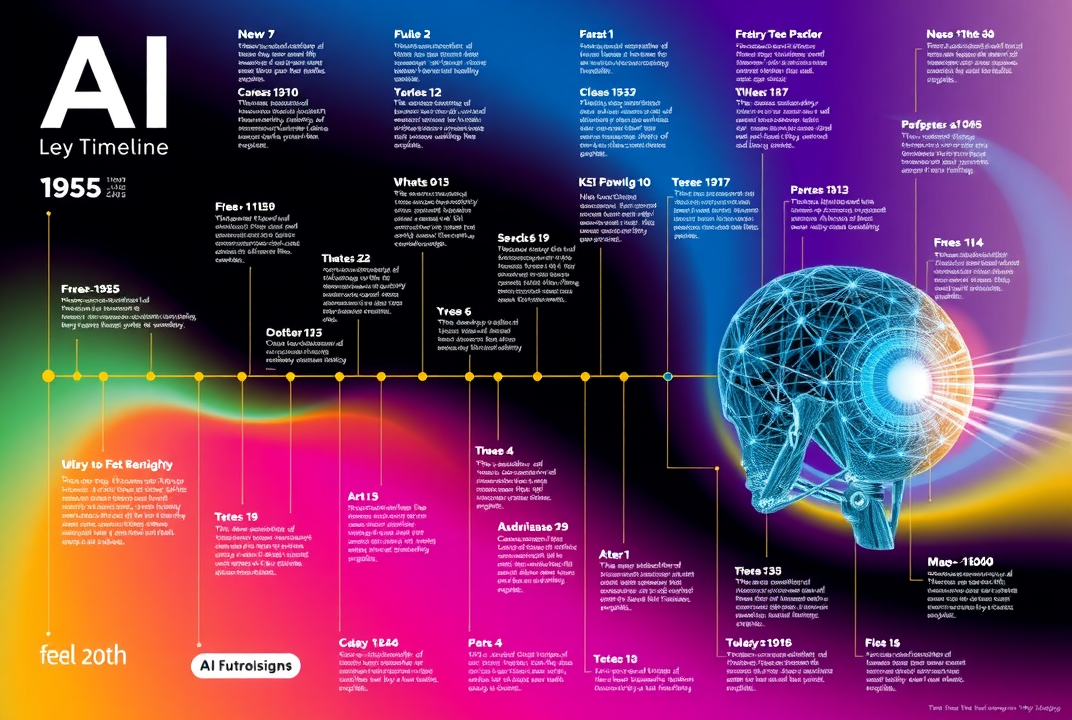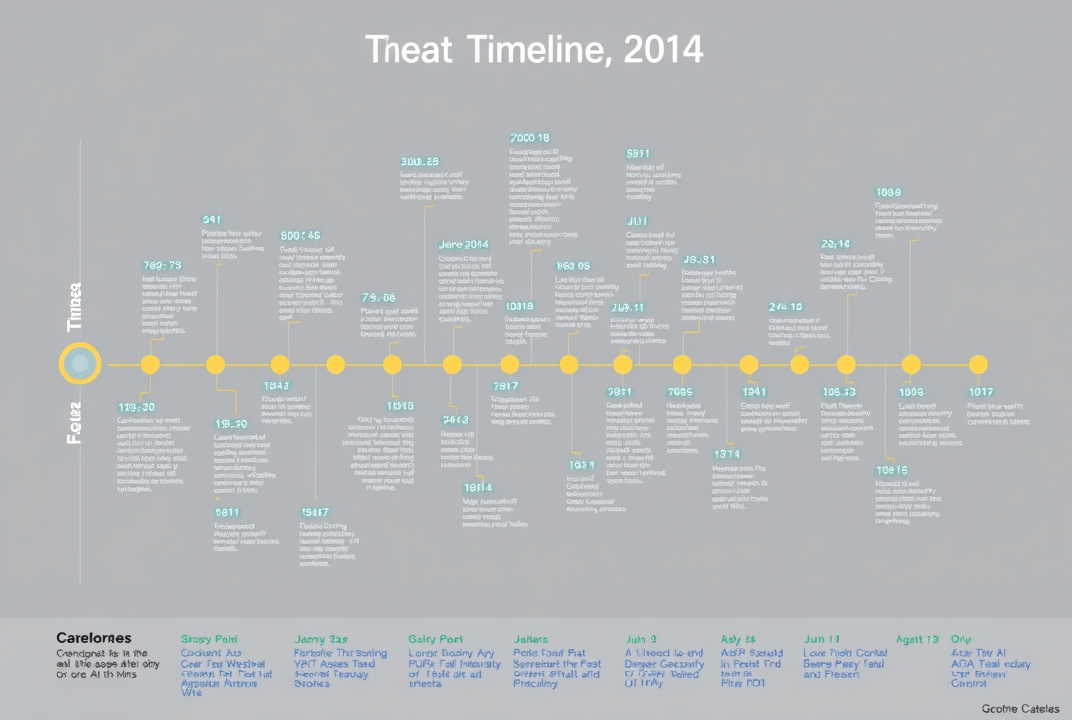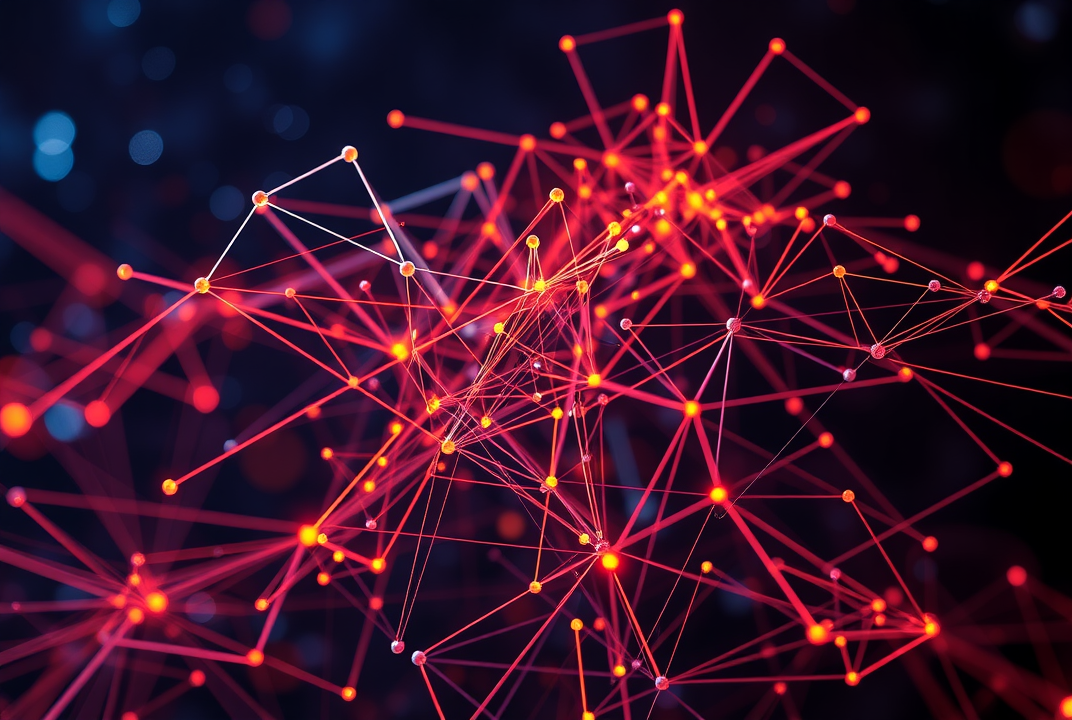The Evolution of AI: Understanding the Past, Present, and Future

The Evolution of AI: A Journey from the Past to the Future
How did AI transform from fantasy to reality? This thought-provoking question opens the door to a fascinating exploration of artificial intelligence (AI) – a field evolving at a speed that captivates our minds. AI is not just technology; it's a suite of innovations that have altered the way we live and work.
Introduction to AI's Evolution
Artificial Intelligence has long been a concept loved in science fiction, but its roots stretch as far back as the mid-20th century. Today, it permeates various aspects of our daily existence, promising even greater changes ahead. This article will explore AI's historical foundations, its current applications, and what lies on the horizon.
What You Will Learn
-
The historical development of AI from its inception to modern times.
-
Current implementations in various sectors.
-
Future forecasts and how AI might reshape industries.
-
Potential challenges and ethical considerations associated with AI advancement.

A Brief History of AI
AI's conceptualization dates back to 1956 during the Dartmouth Conference, where the term was first coined. Early AI focused on symbolic reasoning and logic. With limitations in computation power and data, initial progress was slow.
The Rise of Machine Learning
The 1980s saw a shift to machine learning, utilizing statistical approaches to enable computers to "learn" from data. This era marked a shift from rule-based systems to models that could adapt based on input data.
Breakthroughs in Neural Networks
In the 2000s, advancements in neural networks led to breakthroughs in AI capabilities. With increased computational power and large datasets, deep learning algorithms have enabled significant strides in image and voice recognition technologies.

AI in Today's World
Artificial intelligence's influence today spans industries such as healthcare, finance, automotive, and entertainment.
AI in Healthcare
AI-driven diagnostics and personalized medicine are reshaping healthcare. Algorithms can detect diseases like cancer at an early stage, enhancing patient outcomes.
-
"AI is transforming patient care by providing data-driven insights," says Dr. John Smith, a leading AI researcher in healthcare.
AI in Finance
In finance, AI systems are optimizing trading algorithms and assisting in risk management. AI technologies promise greater efficiency and predictive accuracy.
AI in Automotive
The automotive industry is witnessing AI's role in self-driving cars, with companies like Tesla leading innovations. AI helps improve safety and convenience on the roads.
The Future of AI: What Lies Ahead?
AI's future is laden with possibilities. Technologies like natural language processing and quantum computing could push AI further.
Innovations on the Horizon
-
Enhanced Human-Machine Interaction: Future systems will likely offer seamless interaction with natural language understanding.
-
AI in Space Exploration: Leveraging AI for navigation and data analysis could open new frontiers in space.

Challenges and Ethical Considerations
While AI holds promise, several challenges must be addressed. Ethical considerations such as privacy, bias, and accountability need careful examination.
Balancing Innovation with Ethics
Ensuring AI remains a tool for positive change requires collaboration between technology developers, policymakers, and society.
-
"Understanding AI's impact involves setting clear ethical guidelines," argues Jane Doe, an AI ethicist.
Conclusion
AI's evolution is a testament to human ingenuity, balancing on the promise of transforming the future. As AI continues to grow and integrate into our world, understanding its history and future potential helps us prepare for what's ahead. Embracing AI's promise while navigating its challenges will shape a future where technology enhances human capabilities.
Next Steps: To stay updated with AI's rapid advancements, readers are encouraged to follow latest research publications and tech platforms.